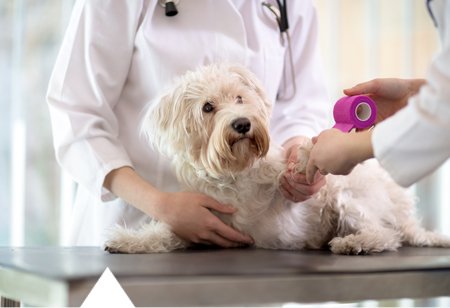Caring for a pet goes far beyond feeding, grooming, and playtime. Ensuring your pet’s long-term health requires proactive medical care and early detection of potential health issues. Pets often hide symptoms of illness until the condition becomes severe, making timely diagnostics critical. Professional veterinary diagnostic services provide the tools and expertise necessary to identify problems early and guide effective treatment.
What Are Pet Diagnostic Services?
Pet diagnostic services are specialized procedures and tests designed to assess the health of your animal companion. They provide veterinarians with detailed insights into your pet’s internal and external well-being, helping detect illnesses before symptoms become severe. These services are crucial for responsible pet owners who want to maintain their pets’ health proactively.
Reliable resources for pet diagnostic service include a wide range of examinations, from routine blood work to advanced imaging, all aimed at understanding and addressing your pet’s health needs. These services ensure that any underlying issues are identified promptly and treated efficiently.
The Role of Diagnostics in Preventive Pet Care
Preventive care is central to long-term pet health, and diagnostics play a key role in this approach. Regular check-ups combined with diagnostic tests allow veterinarians to monitor vital parameters such as blood counts, organ function, and metabolic activity. Early detection of conditions like kidney disease, liver dysfunction, or hormonal imbalances can prevent serious complications and improve treatment outcomes.
Routine diagnostics also help identify risk factors for hereditary conditions in certain breeds. By understanding these risks, pet owners can make informed decisions regarding diet, exercise, and preventive measures, ensuring a healthier and longer life for their pets.
Common Diagnostic Procedures
A variety of diagnostic procedures are available depending on the species, age, and medical history of the pet. Some commonly used diagnostics include:
- Blood Tests: Assess overall health, detect infections, monitor organ function, and evaluate immune system performance.
- Urinalysis: Provides information about kidney function, hydration status, and potential infections.
- X-Rays: Reveal bone fractures, joint issues, or internal abnormalities such as tumors or obstructions.
- Ultrasound: Allows visualization of soft tissues, internal organs, and pregnancy monitoring in pets.
- Endoscopy: Helps investigate internal structures such as the digestive tract and respiratory system.
- Allergy Testing: Identifies environmental or food allergens affecting your pet’s health.
By combining these diagnostic tools, veterinarians gain a comprehensive understanding of your pet’s condition, enabling accurate treatment plans.
Identifying Health Issues Early
Pets are naturally stoic and may not display visible signs of illness until the condition is advanced. Subtle changes in behavior, appetite, or energy levels can be indicators of underlying problems. Diagnostic services help confirm whether these changes are due to a minor issue or a more serious health concern.
For example, unexplained weight loss, vomiting, or excessive thirst could indicate diabetes, kidney disease, or gastrointestinal problems. Timely diagnostic testing allows veterinarians to start treatment before the condition worsens, improving recovery rates and quality of life.
Benefits of Regular Diagnostic Check-Ups
Regular diagnostic testing provides multiple benefits for pet owners and their animals:
- Early Detection: Spotting problems before symptoms become severe allows for quicker and more effective treatment.
- Personalized Care: Diagnostic results enable veterinarians to tailor nutrition, medication, and lifestyle recommendations to each pet’s needs.
- Monitoring Chronic Conditions: Pets with long-term health issues such as diabetes or heart disease benefit from ongoing diagnostics to track progress and adjust treatment.
- Peace of Mind: Knowing your pet is healthy or receiving timely treatment reduces stress for both pets and owners.
Preparing Your Pet for Diagnostic Procedures
Most diagnostic procedures are safe and non-invasive, but some may require preparation. Blood tests and urinalysis often require fasting, while imaging procedures may require sedation for pets that are anxious or uncooperative. Veterinarians provide instructions to ensure accurate results and minimize stress for your pet.
Creating a calm environment, bringing familiar items like a blanket or toy, and offering reassurance can reduce anxiety during diagnostic procedures. Monitoring your pet after testing is also essential, especially if sedation or anesthesia was used.
The Connection Between Diagnostics and Overall Pet Health
Diagnostics are not just about detecting illness—they are integral to comprehensive pet care. By combining regular check-ups, vaccinations, and routine diagnostics, pet owners can create a holistic health plan that prevents disease, promotes wellness, and improves quality of life.
Diagnostic services also empower veterinarians to make data-driven decisions regarding medication, surgery, or lifestyle changes, ensuring interventions are precise and effective. This approach reduces the risk of unnecessary treatments and improves overall outcomes for pets.
Emotional and Behavioral Insights
Some diagnostic services, like blood tests for hormonal imbalances or allergy testing, can also explain changes in behavior or mood. Understanding these underlying causes allows for behavioral interventions alongside medical treatment. A well-rounded diagnostic approach considers both physical and emotional health, ensuring pets remain happy and comfortable.
Final Thoughts
Professional pet diagnostic services are an essential component of responsible pet ownership. They allow early detection of health issues, guide preventive care, and ensure that pets receive personalized treatment tailored to their needs.
By integrating diagnostics into regular veterinary care, pet owners provide a strong foundation for their companions’ long-term health and well-being. Proactive monitoring, timely interventions, and professional guidance ensure pets live healthier, happier, and longer lives, while giving owners confidence in their commitment to their beloved animals.

